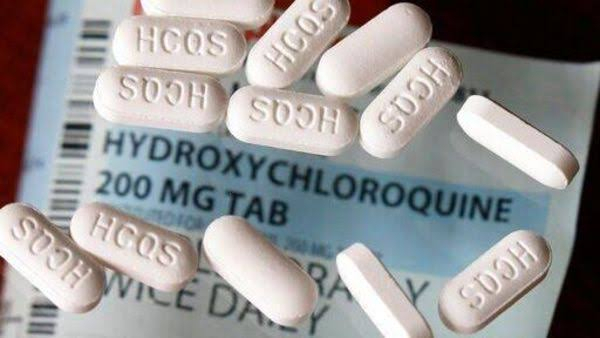Lancet has retracted a major research paper that highlighted the negative effects of anti-malarial drug hydroxychloroquine after it found potential flaws in the research data. The study was published in the medical journal nearly two weeks ago.
In the study published on May 22, the authors stated that they were unable to confirm the benefit of hydroxychloroquine or chloroquine on in-hospital outcomes for COVID-19. "Each of these drug regimens was associated with decreased in-hospital survival and an increased frequency of ventricular arrhythmias when used for treatment of COVID-19," the study had concluded.

Questions Over the Accuracy of Data Used in The Study
The study authored by four researchers was led by Dr Mandeep R. Mehra, a professor at Harvard Medical School. The findings were based on data provided by Surgisphere, a small Illinois company owned by Dr Sapan Desai, one of four co-authors of the study.
A statement issued by the authors, barring Dr Desai, mentioned that following the publication of their Lancet article, several concerns were raised with respect to the veracity of the data and analyses conducted by Surgisphere Corporation. "We launched an independent third-party peer review of Surgisphere with the consent of Sapan Desai to evaluate the origination of the database elements, to confirm the completeness of the database, and to replicate the analyses presented in the paper," said the statement.
"Our independent peer reviewers informed us that Surgisphere would not transfer the full dataset, client contracts, and the full ISO audit report to their servers for analysis as such transfer would violate client agreements and confidentiality requirements," the statement read. "Based on this development, we can no longer vouch for the veracity of the primary data sources," it added.
Lancet Asks for Reviews
Speaking about the retraction of the article after the authors said they could "no longer vouch for the veracity of the primary data sources," The Lancet asked for an institutional review of the Surgisphere's research collaborations.
"The Lancet takes issues of scientific integrity extremely seriously, and there are many outstanding questions about Surgisphere and the data that were allegedly included in this study. Following guidelines from the Committee on Publication Ethics (COPE) and International Committee of Medical Journal Editors (ICMJE), institutional reviews of Surgisphere's research collaborations are urgently needed," a statement read on its website.
Surgisphere Defends Its Role
Insisting that the terms of providing data for the observational study were communicated to the researchers, Surgisphere, in a statement posted on their website said: " In our hydroxychloroquine analysis, we studied a very specific group of hospitalized patients with COVID-19 and have clearly stated that the results of our analyses should not be over-interpreted to those that have yet to develop such disease or those that have not been hospitalized."
"We also clearly outlined the limitations of an observational study that cannot fully control for unobservable confounding measures, and we concluded that off-label use of the drug regimens outside of the context of a clinical trial should not be recommended," the statement said.
The study published in The Lancet on May 22 included data relating to over 96,000 people hospitalized with coronavirus. It included those treated with hydroxychloroquine and chloroquine. The data was obtained from 671 hospitals on six continents, NBC reported.
WHO Resumes Hydroxychloroquine Trials
Soon after the controversial study was published, the World Health Organisation had temporarily pulled the plug on the trials of hydroxychloroquine as a possible cure for coronavirus.
The anti-malarial drug hit the limelight after US President Donald Trump said that he had taken the drug for weeks as a preventive cure for coronavirus, last month.
The Food and Drug Administration, in a warning issued against the consumption of hydroxychloroquine for curing or preventing COVID-19 outside of clinical trials or hospital settings, said that it might lead to possibly fatal heart problems in some people.
Based on available data, the #COVID19 Solidarity Trial Data Safety & Monitoring Committee recommended there are no reasons to modify the trial protocol. The Executive Group endorsed the continuation of all arms of the Trial, including the use of hydroxychloroquine. https://t.co/r88DVEvZ3j pic.twitter.com/cYITShxcE7
— Tedros Adhanom Ghebreyesus (@DrTedros) June 3, 2020
However, with questions arising over the authenticity of the study and its findings, WHO resumed the trials. WHO Director General Tedros Adhanom Ghebreyesus said in a tweet: "On the basis of the available mortality data, the members of the committee recommended that there are no reasons to modify the trial protocol. The Executive Group will communicate with the principal investigators in the trial about resuming the hydroxychloroquine arm of the trial."









